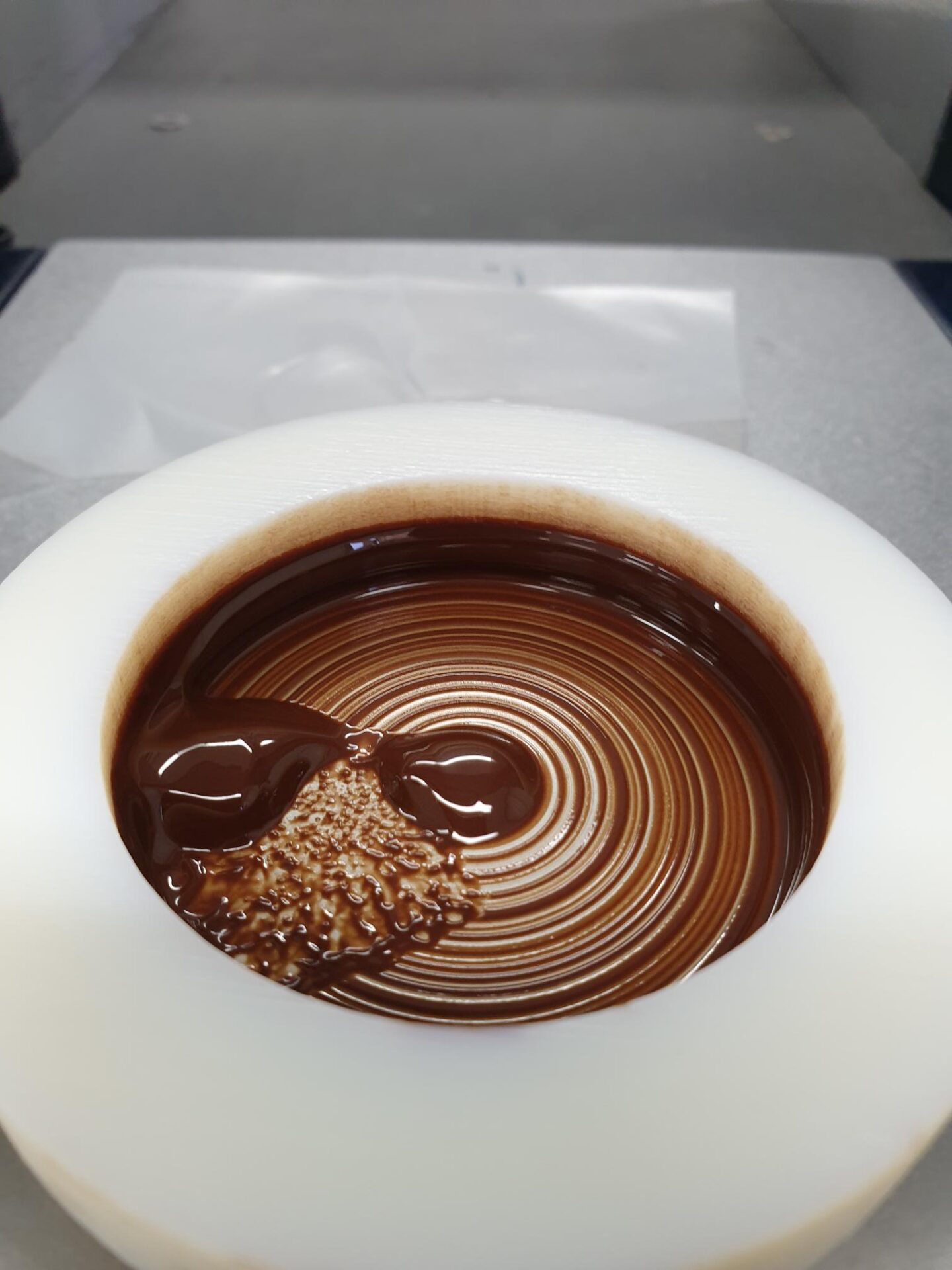Paper published in ACS Applied Materials and Interfaces on Multiscale Lubrication Mechanism of Edible Phase Change Materials by Dr. Siavash Soltanahmadi

New paper titled “Insights into the Multiscale Lubrication Mechanism of Edible Phase Change Materials” by Dr. Siavash Soltanahmadi (Postdoctoral Fellow, ERC LubSat Project) is out in ACS Applied Materials and Interfaces. In oral phase, a phase change for foods often occurs in a sequence of dynamic interactions between the ingested phase change materials (PCM) and oral surfaces from a licking stage to a saliva-mixed stage at contact scales spanning micro- (cellular), meso- (papillae), and macroscales and this can impact tribological properties. In this work, Dr. Soltanahmadi decodes new multiscale lubrication mechanisms of PCM using dark chocolate as an exemplar at a single-papilla (meso)-scale and a full-tongue (macro) scale covering the solid (licking stage), molten, and saliva-mixed states, uniting highly sophisticated biomimetic oral surfaces (3D biomimetic tongue) with in situ tribomicroscopy for the first time supported by theoretical analyses. Multiscale characterization methodologies from this work can be used as robust reference to decipher the often peculiar tribological behaviour of PCM materials when they undergo phase transition. The paper also gives a hypothesis around gradient design of material for the future that may allow giving the same sensation reducing fat content throughout the body! Altogether, the knowledge generated is conceptually attractive to facilitate engineering of PCM and other metamaterials that are often subjected to tribological stresses. Check out the open access paper here: https://doi.org/10.1021/acsami.2c13017
